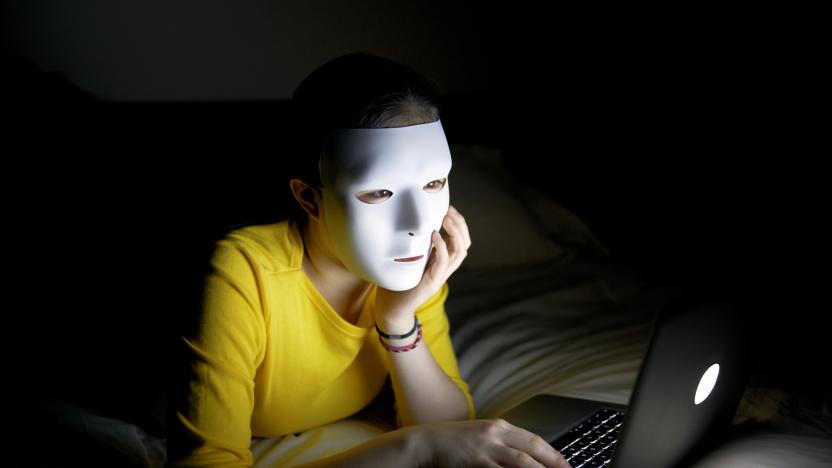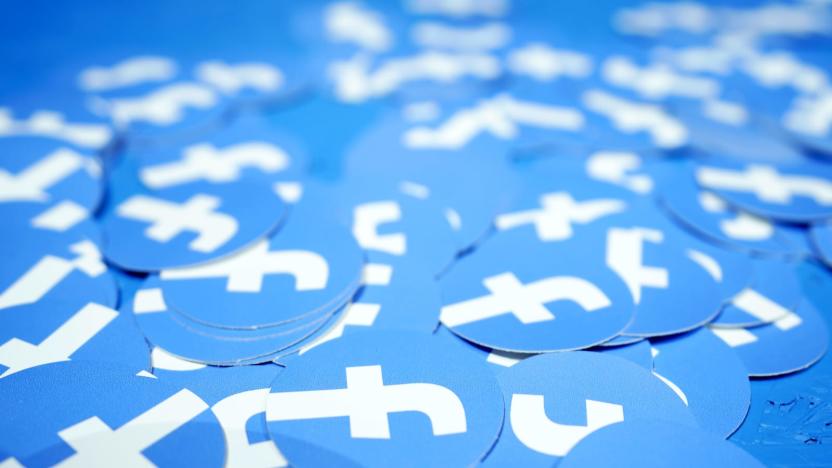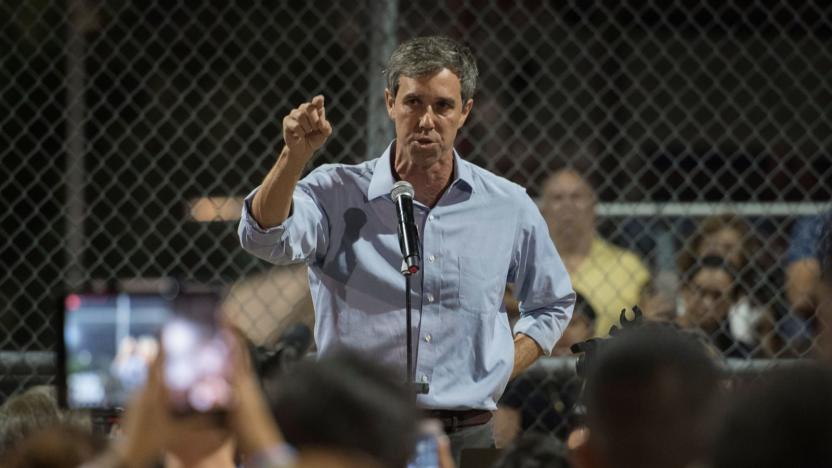safe harbor
Latest

Australia plans laws to make social networks identify trolls
Australia plans to introduce laws that could force social networks to reveal the identities of trolls, raising privacy questions.

Google, Reddit execs to speak at House hearing on internet moderation
American politicians have been questioning whether internet companies should be held liable for the content they allow, and two of those companies will soon address those concerns directly. Two House subcommittees are holding a joint online content moderation hearing on October 16th where Google IP policy head Katherine Oyama and Reddit CEO Steve Huffman (above) will speak as witnesses. The hearing will both explore existing practices and help determine if customers are "adequately protected under current laws," including the Communications Decency Act's Section 230 safe harbor protections.

News anchor sues Facebook, Reddit after creepy photo appears in ads
Fox 29 News anchor Karen Hepp filed a lawsuit against Facebook, Giphy, Imgur, Reddit and porn outlet XNXX for allegedly violating her right of publicity and causing irreparable harm to her reputation after a convenience store security photo of her surfaced on those sites without her consent.

Beto O'Rourke wants to hold internet companies liable for hate speech
If some politicians have their way, internet companies might be held responsible for hate that exists on their platform. Presidential candidate Beto O'Rourke has proposed amending the Communication Decency Act's Section 230, which protects internet companies from being held liable for their users' actions, to "remove legal immunity" for sites and providers that "knowingly promote" material that spurs violence. The operators of a community like 8chan, for example, might have been held responsible for routinely allowing the extremism that led to shootings in places like Christchurch and O'Rourke's hometown of El Paso.

Microsoft's Patriot Act admission has the EU up in arms
Last week, Microsoft quietly confirmed that cloud data stored on its European servers can still be handed over to American investigators -- and the EU is none too pleased about it. As it turns out, the revelation has shed new light on a fundamental conflict between US law and the EU's Data Protection Directive -- an edict requiring that companies notify consumers whenever sharing their personal information. The bi-lateral Safe Harbor agreement calls for similarly strict protocol, but under the Patriot Act (which trumps all else), companies like Microsoft could be forced to hand over private data without informing targeted individuals. In response, some members of the European Parliament are calling upon legislators to take action and to implement safeguards that can't be overridden by third-party governments. It remains to be seen whether or not this leads to any new laws or transatlantic tensions, but if we've learned anything, it's that Europeans take their clouds very seriously.

Italy rules YouTube and other video sites are like TV stations, are liable for content
Strange policy changes are afoot in Italy, where the government's Communications Authority has just issued two resolutions that effectively turn YouTube and other video services into TV stations subject to stricter regulation -- and stricter liability for the content they host. Under the new rules, any site that exercises even the smallest amount of editorial control over its content will be considered an "audiovisual service," and have to pay additional taxes, take down videos within 48 hours if anyone complains of slander, and -- most oddly of all -- somehow refrain from broadcasting videos "unsuitable for children" at certain times of the day. (No, we have no idea how that works with an online video site.) Making matters worse, the new rules give creedence to the notion that video service providers are somehow directly responsible for what their users post to the site -- even if the only "editorial control" they exercise is automated and not overseen by actual humans. We'd expect it the new rules to be challenged in Italian court sometime soon, since they effectively make it impossible to run an online video service in the country, and seem to be in opposition to EU rules that protect internet service providers -- and we'll see if YouTube remains available to Italian IP addresses for very much longer. Oh, and if you're worried this sort of insanity will cross over to the US, you should chillax -- the laws you love to hate are on your side. Section 230 of the Communications Decency Act and Section 512 of the DMCA provide "safe harbor" to internet service providers, making it extremely hard to go after them for the actions of their users. You might remember Section 512, actually -- it played a starring role in knocking down Viacom's lawsuit against Google and YouTube back in June. You, the DMCA and the CDA, all hanging out and watching YouTube together -- sounds like a lovely afternoon, doesn't it? [Thanks, Matthew]

Google executives found guilty of violating privacy of student bullied on video
Hold tight kids, internet privacy laws just got flipped upside down. An Italian judge found three Google executives guilty of violating the privacy of an Italian student who was bullied in a 2006 video posted on Google Video. The video resided on the site for two months before it was brought to Google's attention and pulled. None of the executives were involved in any way in the making of the abhorrent video. Nevertheless, Italian judge Oscar Magi sentenced the execs to a six-month prison sentence but cleared them of defamation charges. No jail time is expected, however, since any sentence of less than 3 years is typically commuted in Italy for those without a criminal record. As you can imagine, Google has responded with vigor. In a post on Google's official blog ominously titled "Serious Threat to the Web in Italy," Google calls the decision "astonishing" citing the assistance it provided to local police in helping bring those who uploaded the video (and bullied the autistic child) to justice. More importantly, Google says that the decision "attacks the very principles of freedom on which the Internet is built." On the surface, we have to agree. Here's how Google describes the dystopian knock-on effect should this ruling take precedent: "European Union law was drafted specifically to give hosting providers a safe harbor from liability so long as they remove illegal content once they are notified of its existence. The belief, rightly in our opinion, was that a notice and take down regime of this kind would help creativity flourish and support free speech while protecting personal privacy. If that principle is swept aside and sites like Blogger, YouTube and indeed every social network and any community bulletin board, are held responsible for vetting every single piece of content that is uploaded to them - every piece of text, every photo, every file, every video - then the Web as we know it will cease to exist, and many of the economic, social, political and technological benefits it brings could disappear." Google will, of course, appeal.

